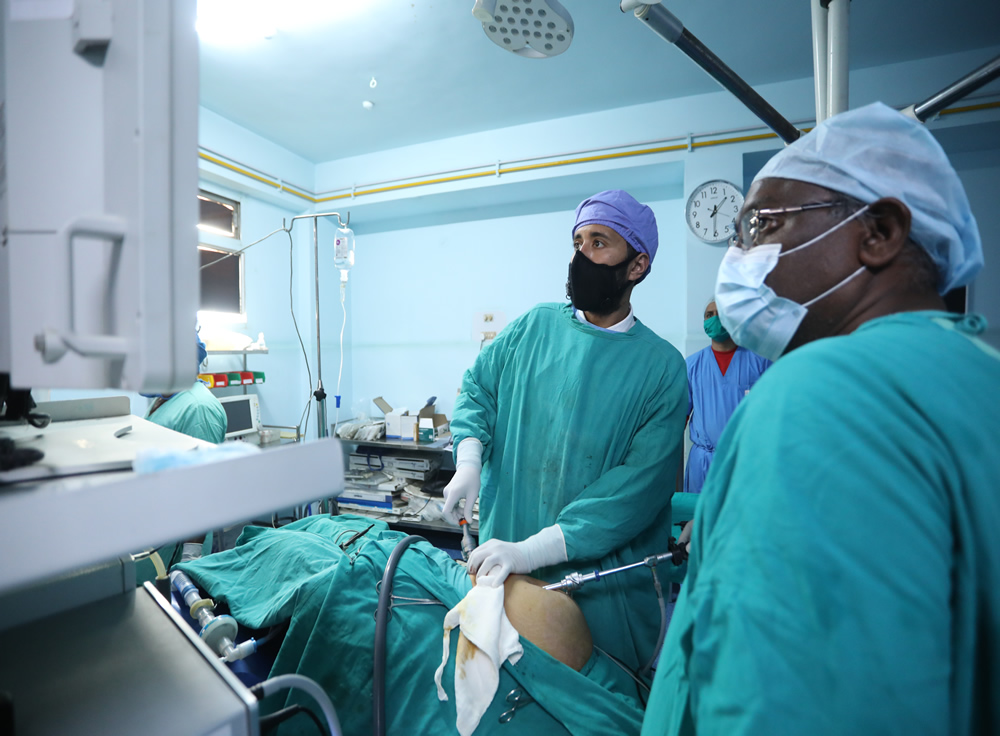What exactly is bariatric surgery? What are the advantages of having bariatric surgery or weight loss Surgery in India?
Bariatric surgery, also known as weight loss surgery, is a medical procedure performed to help individuals who are severely overweight or obese to achieve significant and sustained weight loss. It involves making changes to the digestive system to limit the amount of food the stomach can hold or the absorption of nutrients, leading to reduced calorie intake and, consequently, weight loss.
In India, as in other parts of the world, bariatric surgery is considered an effective treatment option for individuals with obesity-related health issues. There are several types of bariatric surgeries, but the most common ones include:
1. Gastric Bypass Surgery:
In this procedure, the surgeon creates a smaller stomach pouch and reroutes the small intestine, reducing the amount of food that can be eaten and absorbed. It is one of the most commonly performed weight loss surgeries globally.
2. Sleeve Gastrectomy:
This surgery involves removing a portion of the stomach to create a smaller, banana-shaped pouch. It restricts the amount of food the stomach can hold, leading to earlier satiety.
3. Adjustable Gastric Banding:
In this procedure, an inflatable band is placed around the upper part of the stomach, creating a small pouch. The band can be adjusted over time to control food intake.
Advantages of Bariatric Surgery or Weight Loss Surgery in India:
1. Significant and Sustained Weight Loss: Bariatric surgery offers a proven and long-term solution for weight loss, helping patients shed excess weight and maintain a healthier body mass index (BMI).
2. Improvement of Obesity-related Health Conditions: Weight loss resulting from bariatric surgery can lead to improved control or remission of obesity-related conditions such as type 2 diabetes, hypertension, sleep apnea, and high cholesterol levels.
3. Enhanced Quality of Life: With weight loss and improved health, individuals often experience an increased sense of well-being, improved mobility, and a boost in self-confidence.
4. Increased Life Expectancy: Bariatric surgery has been associated with a reduced risk of premature death from obesity-related complications.
5. Personalized Approach: Bariatric surgery is not a one-size-fits-all approach. Surgeons tailor the procedure to each patient's specific needs, ensuring the best possible outcomes.
6. Minimally Invasive Techniques: Many bariatric surgeries in India are performed using minimally invasive techniques like laparoscopy, leading to smaller incisions, less pain, and quicker recovery times.
7. Multidisciplinary Care: Bariatric surgery in India is often carried out by a multidisciplinary team, including surgeons, dietitians, psychologists, and other specialists who collaborate to provide comprehensive care and support.
8. Affordability: Compared to Western countries, bariatric surgery in India is more cost-effective, making it a viable option for individuals seeking quality treatment at a lower cost.
Conclusion:
Bariatric surgery in India offers a transformative solution for individuals struggling with severe obesity and obesity-related health conditions. With various surgical options, personalized care, and the potential for improved health and quality of life, bariatric surgery has become a popular choice for individuals seeking effective and lasting weight loss solutions in the country. However, it's essential to consider each patient's unique medical situation and seek advice from qualified healthcare professionals to determine the most suitable treatment option.

Comments
Post a Comment